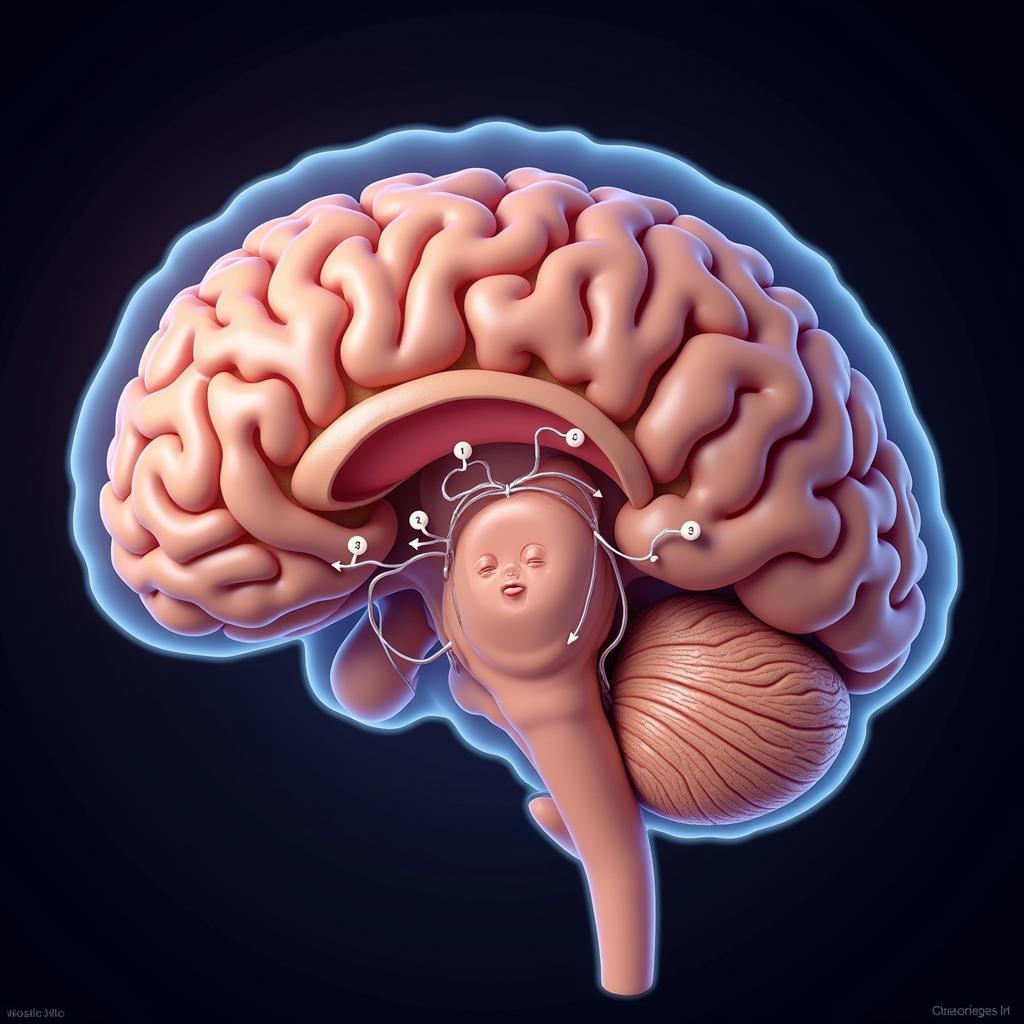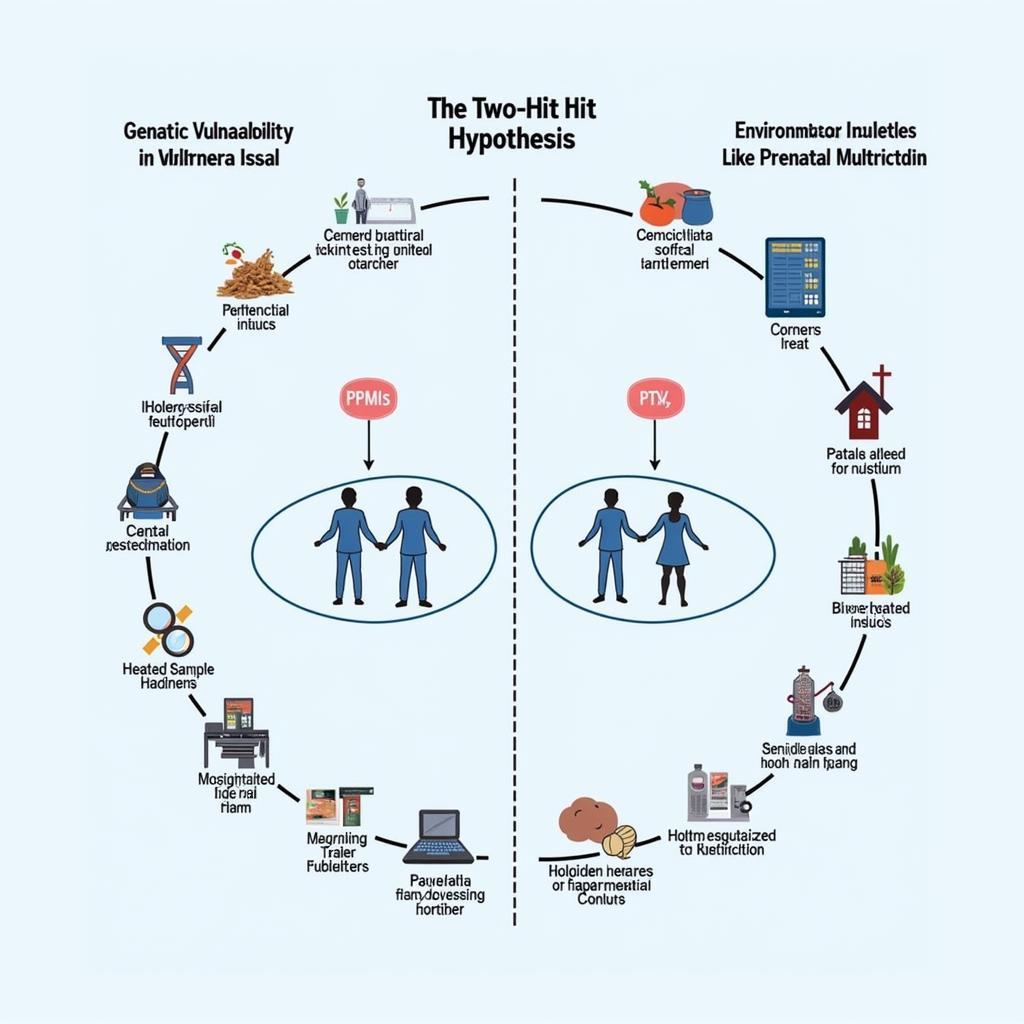Research Indicates That Prenatal Malnutrition May Be Connected To Schizophrenia. This complex neurodevelopmental disorder, characterized by hallucinations, delusions, and disorganized thinking, has long puzzled researchers searching for its root causes. While genetics undoubtedly plays a role, increasing evidence points towards environmental factors, particularly those experienced during the crucial prenatal period, as significant contributors to the development of schizophrenia.
Prenatal Malnutrition: A Critical Period of Vulnerability
The fetal brain undergoes rapid development during pregnancy, making it particularly susceptible to environmental insults. Prenatal malnutrition, whether due to famine, maternal dietary deficiencies, or placental issues, can disrupt this delicate process. Essential nutrients, such as folate, choline, and iron, are crucial for proper brain development. A deficiency in these nutrients can lead to long-lasting structural and functional changes in the brain, potentially increasing the risk of schizophrenia later in life. Studies focusing on specific periods of gestation have revealed that malnutrition during the first and second trimesters appears to be particularly impactful.
One key aspect of this research focuses on the Dutch Hunger Winter, a period of severe famine in the Netherlands during World War II. Children born during this time experienced significantly higher rates of schizophrenia than those born before or after the famine. This tragic natural experiment provided compelling evidence linking prenatal malnutrition to an increased risk of schizophrenia.
 Prenatal Malnutrition's Impact on Brain Development
Prenatal Malnutrition's Impact on Brain Development
The Role of Epigenetics
The connection between prenatal malnutrition and schizophrenia may be explained, in part, by epigenetics. Epigenetics refers to changes in gene expression that do not involve alterations to the underlying DNA sequence. Environmental factors, such as nutritional status, can influence epigenetic mechanisms, leading to lasting changes in gene activity. These changes can be passed down through generations, potentially explaining why the offspring of individuals exposed to prenatal malnutrition might have an increased risk of schizophrenia even if they themselves are not malnourished. Current research is exploring how specific epigenetic modifications might contribute to the development of schizophrenia.
Other Environmental Factors and the “Two-Hit” Hypothesis
While prenatal malnutrition appears to be a significant risk factor, it’s important to remember that schizophrenia is likely caused by a complex interplay of genetic and environmental factors. The “two-hit” hypothesis proposes that a genetic predisposition combined with environmental insults, such as prenatal malnutrition, can trigger the development of the disorder. Other prenatal environmental factors, including maternal infections, stress, and exposure to toxins, are also being investigated for their potential role in schizophrenia.
 The Two-Hit Hypothesis in Schizophrenia
The Two-Hit Hypothesis in Schizophrenia
What are the long-term effects of prenatal malnutrition?
Prenatal malnutrition can have long-lasting consequences, including an increased risk of developing neurodevelopmental disorders like schizophrenia.
How does epigenetics influence the development of schizophrenia?
Epigenetics refers to changes in gene expression that do not involve alterations to the DNA sequence. Environmental factors like prenatal malnutrition can influence epigenetic mechanisms, leading to lasting changes in gene activity that might contribute to schizophrenia.
Current Research and Future Directions
Research into the link between prenatal malnutrition and schizophrenia is ongoing. Scientists are working to identify specific nutrients and critical periods of vulnerability, as well as to understand the underlying biological mechanisms involved. This research holds promise for developing preventative strategies and targeted interventions to reduce the risk of schizophrenia in future generations.
Conclusion
Research strongly suggests a connection between prenatal malnutrition and schizophrenia. While more research is needed, understanding the role of environmental factors like prenatal nutrition is crucial for developing effective prevention and treatment strategies. Research indicates that prenatal malnutrition may be connected to schizophrenia, opening up new avenues for addressing this devastating disorder.
FAQ
-
Can prenatal vitamins help prevent schizophrenia? While prenatal vitamins are essential for healthy fetal development, they cannot guarantee the prevention of schizophrenia.
-
What are the early signs of schizophrenia? Early signs can be subtle but may include social withdrawal, difficulty concentrating, and unusual thoughts or beliefs.
-
Is schizophrenia genetic? Genetics plays a role, but environmental factors also contribute significantly.
-
Is schizophrenia curable? There is no cure, but effective treatments are available to manage symptoms.
-
What kind of support is available for individuals with schizophrenia? Various support systems, including therapy, medication, and support groups, are available.
-
How can I learn more about the Dutch Hunger Winter study? Several reputable online resources and academic publications detail the findings of this important research.
-
What are the current recommendations for pregnant women regarding nutrition? Consult your doctor or a registered dietitian for personalized dietary advice during pregnancy.
Need more assistance? Contact us! Phone: 0904826292, Email: research@gmail.com or visit us at No. 31, Alley 142/7, P. Phú Viên, Bồ Đề, Long Biên, Hà Nội, Việt Nam. Our customer service team is available 24/7.